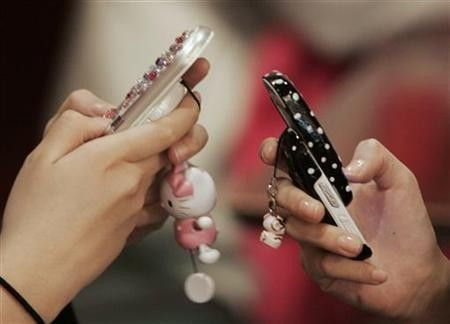Proposed ‘Revenge Porn’ Bill Will Make It A Felony to Share Naked Photos, Sex Tapes in Florida

Scorned lovers who post photos and video of their ex’s will soon be facing more than a guilty conscience, after a Florida lawmaker proposed a bill making it a felony to post revenge porn online.
The proposed bill would make it a felony to publish nude photos or videos of a person online with their identifying information without their permission.
“This is about a person posting an image that has no legitimate purpose but to harass a victim by associating it to their name, their social media with their personal identifiers. It puts them at risk, it puts them at emotional distress from the [effects] of these postings,” said author of the bill Agent Daniel Ogden to My Fox Orlando.
The Brevard County Sheriff’s Office Agent is calling the legislation a tool in fighting against cyber bullying after repeatedly receiving reports of nude photos scandals from all ages and sexes.
“We’ve had students come forward, college students, that have found out that there were images of them posted online, and one of them in particular wanted to apply for a job as a teacher but is afraid to because of these postings in fear that someone may do an Internet search of her name and find these images, and she does not want that to affect her career,” said Ogden.
If passed, the bill, now titled “Computer of Electronic Device Harassment,” will require up to five years behind bars for anyone who is convicted, making it a third-degree felony.
Some are applauding the bill's intentions, including the co-founder of the non-profit organization, Without My Consent Erica Johnstone. Johnstone claims that although the bill would make a profound dent in the issue, the bill is at risk of not passing, with no previous bills pertaining to the issue in existence.
“Even if people aren’t afraid of being sued because they have nothing to lose, they are afraid of being convicted of a crime because that shows up on their record forever,” said Johnstone.
Law Professor at the University of Miami Mary Anne Franks said although with good intentions, the bill, which makes exceptions for photos and videos taken in public, has flaws in terms of what is considered consent, calling the terms “too narrow.”
“If a woman’s skirt blows up in the wind and she is not wearing anything underneath, can an image of her be posted to an up-skirt porn site? What about mothers breast-feeding in public? Is a public bathroom public? What about a changing room in a department store?” said Franks.
Others are calling the bill a controversy waiting to happen.
“Who owns the pictures? Maybe I own them. But maybe you give me a knife, does it mean I have the right to stab you with it,” said criminal defense attorney Hal Uhring. “There is all kinds of civil opportunities to sue for damages done. I'm not sure it's criminalized,” he said.
The bill has already been passed by the House of Representatives Criminal Justice Committee and was first filed on Feb. 13.
© Copyright IBTimes 2025. All rights reserved.






















